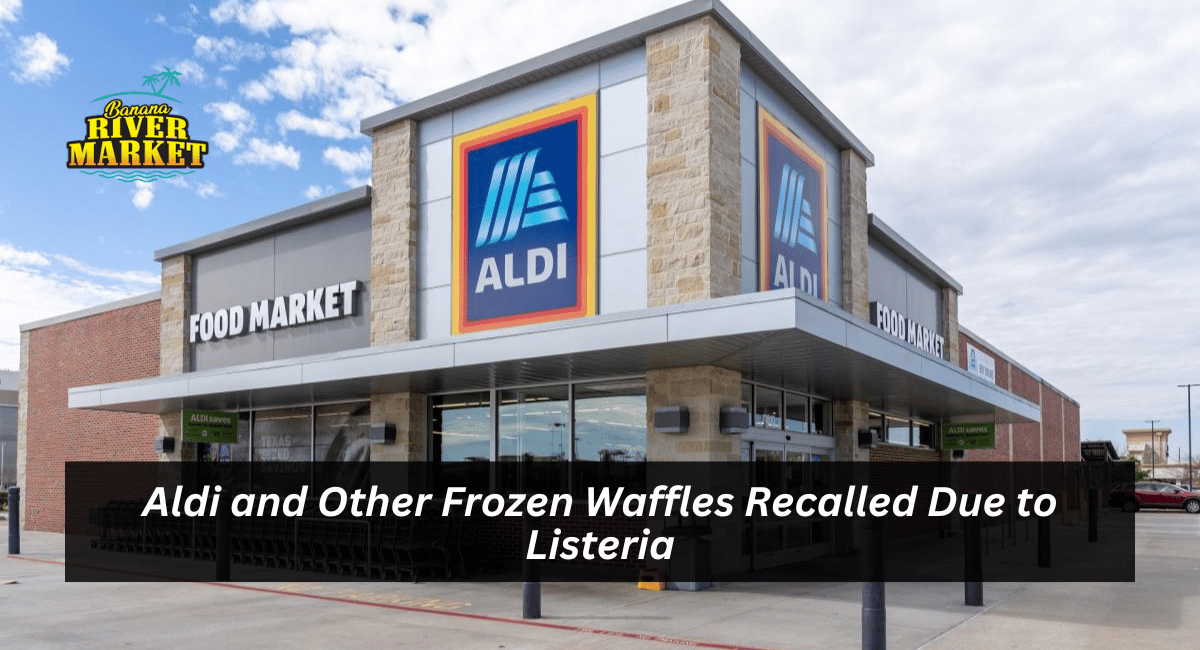Attention Aldi shoppers: A significant recall affects frozen waffles and other products sold under various brands.
This recall stems from potential contamination with Listeria monocytogenes, a bacteria that can lead to serious infections, especially for vulnerable populations such as pregnant women, young children, the elderly, and individuals with weakened immune systems.
What’s Happening?
The alarm was raised after routine inspections conducted by the manufacturer revealed the presence of Listeria in the frozen waffles.
While many associate listeria with items like raw milk, cheese, and deli meats, it’s crucial to understand that many other food products can also be at risk. The affected waffles had already been distributed widely across the United States and Canada, which prompted the urgent recall announcement.
This situation follows another serious recall involving BrucePac meats, which was also linked to the same bacteria.
A More Expansive Problem Other Brands Affected
While this recall primarily impacts Aldi, shoppers should be aware that other supermarkets are also involved. TreeHouse Foods, the manufacturer of the recalled waffles, supplies several well-known grocery chains, including Walmart, Target, Food Lion, Giant Eagle, and many more.
These brands affected by this recall include Always Save, Good & Gather, Great Value, and Kodiak Cakes. For a complete list of affected products and brands, customers are encouraged to visit the Tree House Foods website.
What to Do If You’ve Purchased These Products
No illnesses have been reported related to the consumption of these products. However, customers who may have bought any recalled items should take immediate action to ensure safety. Here are some steps to follow:
- Check Your Freezer: Look for frozen waffles or related products that may be included in the recall. If uncertain, refer to the packaging or visit the TreeHouse Foods website for a complete list.
- Return or Dispose of Affected Products: If you find recalled items, it’s best to return them to the store for a refund or dispose of them safely.
- Stay Informed: Watch local news or updates from the FDA for any new information about the recall or related health advisories.
Understanding Listeria and Its Risks
Listeria monocytogenes is a serious pathogen that can cause listeriosis, a potentially life-threatening infection. The bacteria can be particularly harmful to certain groups, including:
- Pregnant Women: Listeria infections during pregnancy can lead to miscarriage, premature delivery, or severe illness in newborns.
- Young Children: Their immune systems are still developing, making them more susceptible to infections.
- Elderly Individuals: Older adults often have weaker immune systems, putting them at greater risk.
- Immunocompromised People: Individuals with conditions like HIV/AIDS, cancer or those taking immunosuppressive medications are at higher risk for severe illness.
Listeriosis symptoms can include fever, muscle aches, nausea, and diarrhea. In severe cases, it can lead to meningitis or septicemia.
If you or someone you know has consumed any recalled products and is experiencing these symptoms, seeking medical attention is crucial.
Keeping Your Food Safe
While recalls like this one are concerning, there are steps you can take to minimize the risk of foodborne illnesses in your home:
- Practice Safe Food Handling: Always wash your hands before handling Food, and keep your kitchen surfaces clean.
- Cook Food Thoroughly: Ensure all foods are cooked to safe internal temperatures. For example, hot foods should be kept at 140°F or above, and leftovers should be refrigerated promptly.
- Check Expiration Dates: Regularly check the expiration dates on food items and be cautious with products past their sell-by dates.
- Stay Updated on Recalls: Sign up for notifications from the FDA or follow local news sources to stay informed about food safety issues.
Conclusion
In summary, if you shop at Aldi or other major grocery chains, you must check for frozen waffles and other products that may be involved in the current recall.
While no illnesses have been reported, taking proactive steps to dispose of or return these items can help prevent potential health risks. Always prioritize food safety by staying informed about recalls and practicing safe Food handling in your kitchen.
By being vigilant and informed, you can help protect yourself and your loved ones from the risks associated with foodborne illnesses.
If you have questions or concerns, don’t hesitate to contact your local grocery store or health department for more information. Stay safe!
READ MORE: McKee Foods Launches Little Debbie Cosmic Mini Muffins

